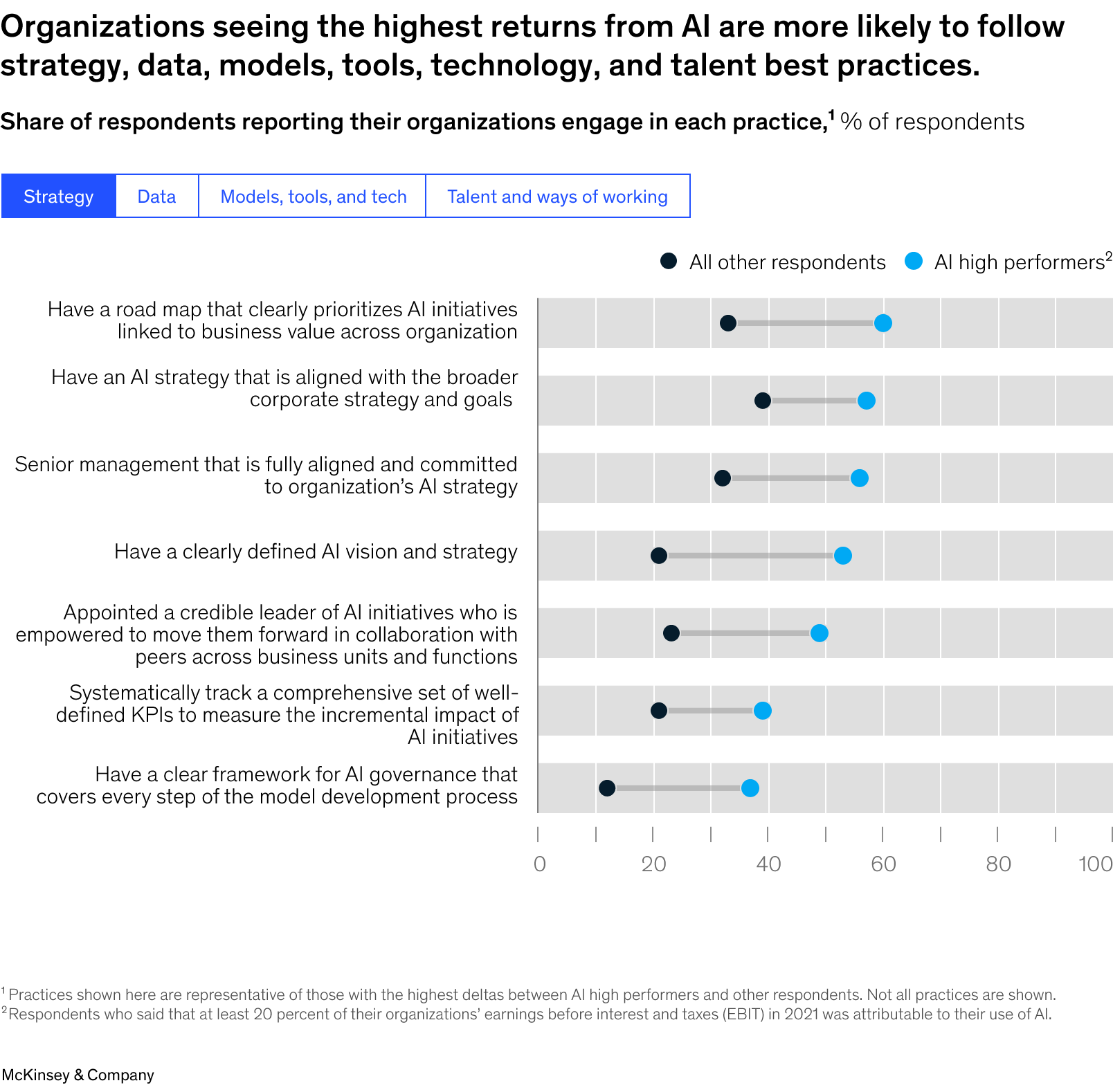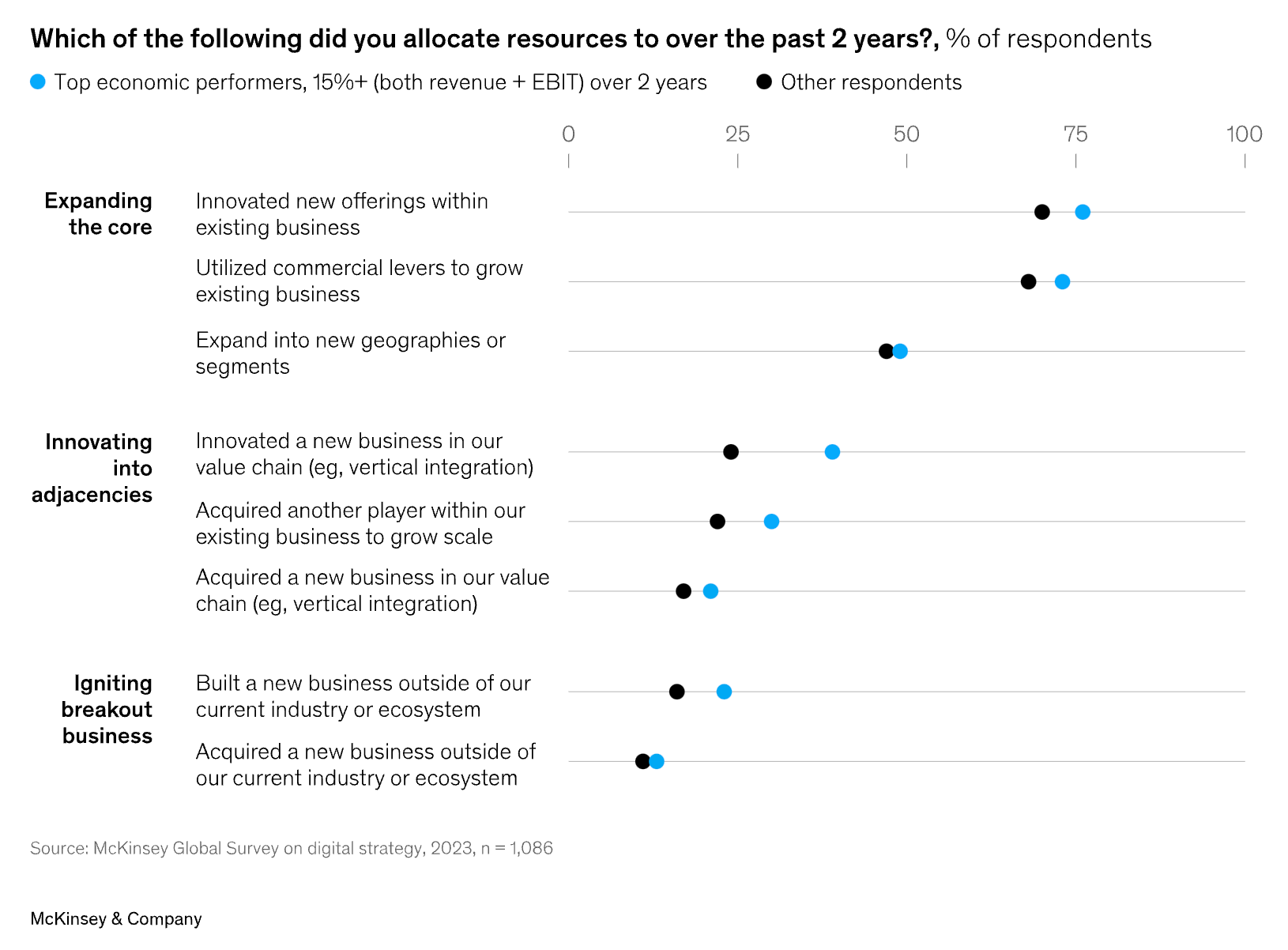Book Your AI Strategy Session

Getting started with AI? Grab time with Stephen....
I've worked with 50+ companies on their AI strategy and built an LLM App Platform with Klu – I'm happy to help you get started as well.
Check out these options.
GenAI Bootcamp Workshop
The advent of Generative AI technology, including LLM/GPT-4 models, is revolutionizing the world as we know it.
It's crucial for organizations to fully comprehend and implement this technology daily, or they risk falling behind their competitors who do.

I offer a half-day or full-day workshop for organizations interested in exploring generative AI (GPT-4, Midjourney, Stable Audio etc) for both productivity and product/service development.
We kick off the workshop with an inspiring talk about generative AI – its definition, significance, applications, product development strategies, limitations, and more. This talk is packed with concrete examples.

Following this, we dive into your specific context and brainstorm how this technology can be utilized in your organization and products. Lastly, we pinpoint concrete actions and experiments that you can immediately implement.
The difference between the half-day and full-day workshops is that the latter allows more time to delve deeper into your context and address your questions.

Pricing for onsite (San Francisco):
- $5200 (half day)
- $8900 (full day)
Pricing for remote:
- $4700 (half day)
- $7600 (full day)
LLM Bootcamp with Micro AI Design Sprint
This is an intensive full day workshop focused on rapidly ramping up your team's ability to leverage large language models like OpenAI GPT-4 and Anthropic Claude 2 for content creation, product prototyping, workflow automation, and more.
Get real-world insight into performance, common pitfalls, and how to build an AI strategy that creates a moat for your business.
What you get:
- Intro to LLMs for an Engineering, Designer, and Product Manager audience
- Deep dive into LLMOps for production apps
- Hands-on AI Design Sprint for validating ideas and creating real prototypes
We cover both the practical application and the design principles behind responsible and effective AI. The workshop includes a micro design sprint where participants form small teams to rapidly ideate and prototype an AI concept relevant to your business.
Price: $14,970
Typical Sessions
AMA (Ask Me Anything) Remote Session
Typical topics include the practical application of generative AI, questions about my presentations/writings/work, team coaching/mentoring, discussions about product strategy, growth and data analysis, product design, great records... anything really!
We can discuss anything on your mind. Price: $2390 for one hour, or $3470 for two hours.
Prerecorded Remote Talk Followed by Q&A / Discussion
There are two options for this.
Live Intro and Q&A
I'll do a short live introduction, stream the talk to everyone, then stay around for up to 1 hour of Q&A or discussions. Price: $5790.
Q&A Only
Alternatively, you can stream the talk yourself, or ask attendees to watch it in advance. Then I'll join for a Q&A. This is equivalent to an AMA session ($2390 per hour or $3470 for two hours).
Live Remote Talk Followed by Q&A / Discussion
The session length is up to 2 hours (includes presentation and Q&A). This includes a prep meeting to discuss your context. Price: $7970
Live Onsite Talk Followed by Q&A / Discussion
This includes up to half a day of Q&A, discussion, or workshops, as well as a prep meeting to discuss your context. Price:
- $8900 (San Francisco)
- $11700 (US outside San Francisco)
- $14900 (outside US)
Previous Talks
You can preview slides from "AI Reshaping SaaS" talk and workshop presented in Berlin, March 2023, at the European CPO Conference.
- LLMs in Production
- Intro to LLMs for Product Leaders
- Building an AI Moat
- AI will Shape SaaS
You can reserve a slot here and see availability for the next 10 days.
Please note that the calendar slots are real-time, so if the time is available, you can book it without worrying. Please include details about you organization and specific project or goals so that I can come prepared. I may cancel bookings that do not include real information.
Preparation meetings are typically not needed for AMA and prerecorded talks.
All prices come with a full money-back guarantee if you are dissatisfied for any reason.
Got questions? Book a time to chat.


Essential Components of an AI Strategy Workshop

- Defining the business problems/opportunities
Give the workshop focus by clearly outlining the key business problems or opportunities that AI could help address. - Understanding current AI maturity
Set the organizational baseline by assessing the organization's current AI capabilities, infrastructure, skills/talent, and activities. - Envisioning the art of the possible
Brainstorm ideas, explore, and discuss how AI could be applied in various parts of the business to enhance products, processes, decisions, etc. - Prioritizing AI opportunities
Based on the business needs and AI maturity assessment, identify and prioritize the top 3-5 highest potential AI opportunities/use cases. - Outlining data requirements
Determine what data is required to enable the identified AI opportunities and assess readiness. - Mapping AI talent and skills
Identify what skills and roles are needed to operationalize the AI priorities and evaluate any gaps. - Developing an execution roadmap
Create a roadmap to deploy AI solutions, detailing activities, milestones, roles, and timelines. - Defining success metrics
Determine appropriate Key Performance Indicators to measure progress and ROI. - Gaining leadership commitment
Secure buy-in from senior leadership on the AI strategy and planned initiatives. - Building an AI culture
Discuss approaches to build greater AI understanding and awareness throughout the organization.
The outputs of the workshop should include an AI strategic plan that can be socialized across the organization, aligned with feedback, and executed.
Setting Objectives
A crucial aspect of an AI strategy workshop is establishing clear objectives for AI implementation. By setting precise goals, you can provide direction for AI adoption and ensure that the desired outcomes are achieved. Objectives for AI implementation may include:
- Cost savings
- Enhanced customer experience
- Increased efficiency
- Improved decision-making
So, where should you focus your efforts? Attaining these objectives requires a systematic approach, starting with the identification of appropriate use cases, followed by creating a roadmap, and executing the AI strategy. By establishing objectives, your organization can successfully embrace AI, break industries, and create new opportunities.
Identifying Stakeholders

Recognizing key stakeholders who play a vital role in shaping the future AI landscape is a requisite for developing a successful AI strategy. Stakeholders in an AI strategy workshop may include:
- Business executives
- IT and technology teams
- Data scientists
- Legal and compliance professionals
- Marketing and customer experience teams
Each stakeholder, including the business leader, has a unique role and responsibility within the AI strategy workshop. For instance, business executives provide overarching direction, data scientists create models and algorithms, and legal professionals ensure compliance with regulations.
Defining Success Metrics
One of the key components of a successful AI strategy workshop is defining success metrics to measure the impact of AI initiatives. Relevant success metrics include:
- Added value
- Business growth
- User satisfaction
- Response time
- Customer satisfaction
By tracking these KPIs, you can ensure the success of your AI projects and stay ahead in the competitive landscape.
Building a Robust AI Strategy: From Theory to Practice

After gaining a solid understanding of the essential components of an AI strategy workshop, you can start applying the theory in practice. This involves:
- Exploring specific AI applications in your industry
- Addressing legal and ethical considerations
- Overcoming challenges that may arise during implementation.
The subsequent sections will delve deeper into each of these aspects, equipping you with the necessary knowledge and insights to build a robust AI strategy. This will enable seamless integration of AI technologies into your organization, driving your business towards long-term success.
Machine Learning Applications
Machine learning is a core component of AI technologies, capable of recognizing patterns and making decisions with minimal human involvement. By understanding the potential applications of machine learning in various industries, you can identify opportunities for AI integration within your organization and maximize its benefits.
In different sectors, machine learning applications can be employed for various purposes:
- In the healthcare sector, machine learning can be used to diagnose diseases, forecast patient outcomes, and optimize treatments.
- In the financial sector, machine learning can be utilized to detect fraud, automate trading, and optimize investments.
- In marketing, machine learning applications can be used to personalize customer experiences, optimize campaigns, and analyze customer behavior.
By leveraging these applications, your organization can harness the power of AI and create a competitive edge in your industry.
Legal Considerations and Ethics
AI implementation comes with its share of legal and ethical considerations that must be addressed to ensure a responsible and successful AI strategy. For instance, when training AI models, it is crucial to guarantee that the data used is representative of the population it is intended to serve, and that the AI model is not biased towards any particular group.
Additionally, when working with AI models, it is important to:
- Ensure that the AI model is accurate and reliable
- Identify and address any errors or inaccuracies
- Collect and store data securely, in compliance with relevant laws and regulations.
By addressing these legal and ethical considerations in your AI strategy, your organization can minimize potential risks and build a responsible and compliant AI program.
Overcoming Challenges
Implementing AI solutions is not without its challenges, and being prepared to overcome these hurdles is essential for successful AI adoption. Some common challenges include:
- Inadequate or low-quality data
- Outdated infrastructure
- Integration into existing systems
- Scarcity of AI talent
To address these challenges, organizations can invest in data quality, cultivate AI talent, and encourage collaboration between stakeholders. By proactively addressing potential issues and adapting your AI strategy accordingly, you can successfully navigate the challenges of AI implementation and unlock the full potential of AI technologies for your organization.
Embracing AI: Preparing your Organization for the Future

Preparing your organization for an AI-driven future involves:
- Developing a robust AI strategy
- Fostering cultural shifts
- Nurturing AI talent
- Promoting cross-departmental collaboration
Embracing AI and implementing these organizational changes can position your business for long-term success in the future landscape.
We will examine the key aspects of preparing your organization for AI adoption, with a focus on creating a data-driven culture, nurturing AI talent, and fostering collaboration. This will ensure your organization is primed to harness the full power of AI technologies.
Creating a Data-Driven Culture
Cultivating a data-driven culture is essential for organizations looking to embrace AI and stay ahead in the competitive landscape. A data-driven culture is one in which decisions are made based on data science and analytics, rather than relying on intuition or guesswork.
To establish a data-driven culture within your organization, it is crucial to invest in data literacy, foster a data-driven mindset, and provide access to data-driven tools and technologies. By creating an environment where employees feel comfortable discussing and experimenting with AI, your organization can fully leverage the power of AI technologies and make more informed, data-driven decisions.
Developing AI Talent
Attracting and nurturing AI talent is crucial for the long-term success of your AI strategy. AI talent encompasses individuals who possess the requisite abilities and knowledge to work with artificial intelligence technologies, such as:
- Data architects
- Data engineers
- Data scientists
- Machine learning engineers
- Product managers
In order to attract and cultivate AI talent, organizations can provide competitive salaries, offer educational and professional development opportunities, and foster a culture that embraces innovation and collaboration. By investing in AI talent development, your organization can ensure that it has the necessary skills and expertise to effectively implement AI technologies and drive business success.
Fostering Collaboration
Cross-functional collaboration is fundamental for successful AI initiatives, as it enables the exchange of ideas, resources, and knowledge between various teams and departments. By facilitating collaboration, your organization can effectively leverage the expertise of different stakeholders to develop and implement a comprehensive AI strategy.
To encourage collaboration, it is essential to:
- Establish a shared vision
- Define goals and objectives
- Allocate resources and support
- Promote open communication
- Recognize and reward team members for their efforts
By fostering a collaborative environment, your organization can fully harness the power of AI and new technologies, driving innovation and long-term success.
Tailoring the AI Strategy Workshop to Your Industry

Though the core components of an AI strategy workshop remain consistent across industries, tailoring the workshop to cater to your industry’s specific needs and challenges is crucial. By considering the existing landscape, potential applications, and ramifications of AI in your industry, you can develop a more targeted AI strategy that is both effective and relevant.
In the following sections, we will explore how to adapt AI strategy workshops for the healthcare, finance, and marketing industries, offering insights and recommendations to ensure the successful implementation of AI technologies in these sectors.
AI in Healthcare
AI has the potential to revolutionize the healthcare industry by improving patient care, streamlining administrative processes, and reducing costs. From diagnosing diseases to optimizing treatments, AI applications in healthcare can lead to better outcomes for patients and healthcare providers alike.
To capitalize on the potential of AI in healthcare, organizations should leverage existing data, form partnerships with technology companies, and invest in AI-driven solutions. Additionally, ethical and legal considerations should be taken into account when implementing AI solutions in healthcare, ensuring responsible and compliant AI adoption.
AI in Finance
The role of artificial intelligence ai in finance and banking is rapidly expanding, with applications ranging from fraud detection to automated trading. These AI technologies have the potential to increase efficiency, reduce costs, and improve customer experiences.
To leverage the power of AI in finance, organizations must address trust in the technology, implementation and maintenance costs, as well as legal and ethical considerations. By overcoming these challenges and embracing AI, financial institutions can capitalize on the opportunities presented by AI technologies and stay ahead in the competitive landscape.
AI in Marketing
AI technologies have the potential to transform marketing and customer engagement, offering insights into customer behavior, personalizing experiences, and optimizing marketing performance. By incorporating AI into marketing strategies, businesses can target their desired audience more accurately and increase customer satisfaction.
To successfully implement AI in marketing, businesses must address challenges such as access to large datasets, specialized skills, and potential ethical issues. By embracing AI and overcoming these challenges, organizations can unlock the full potential of AI technologies in marketing and drive long-term success.
Post-Workshop Support: Ensuring Long-Term Success

The AI strategy workshop is just the beginning of your AI journey. Providing post-workshop support, including evaluation and feedback, ongoing learning opportunities, and progress monitoring, is crucial for ensuring long-term success in AI adoption. This support enables organizations to accurately implement their AI strategy, address any issues that may arise, and make necessary adjustments to achieve the desired outcomes.
In the following sections, we will discuss the importance of post-workshop follow up support and provide recommendations for ensuring the long-term success of your support AI strategy.
Evaluation and Feedback
Offering evaluation and feedback on AI strategy implementation is crucial for identifying areas for improvement and providing guidance for future performance. Evaluating progress can be done by tracking relevant KPIs and other metrics, while feedback can be provided based on the examination of the data.
By regularly reviewing KPIs, testing changes before implementation, and incorporating feedback from stakeholders, organizations can continually refine their AI strategy and ensure its ongoing success.
Ongoing Learning Opportunities
As AI technologies continue to evolve, it is essential to provide ongoing learning opportunities for AI skill development. These learning opportunities can take many forms, such as external workshops and webinars, training programs, and internal workshops and presentations.
By offering ongoing learning opportunities, organizations can ensure that their employees possess the necessary skills and knowledge to effectively implement AI technologies and drive business success.
Monitoring Progress
Regularly monitoring the progress of your AI strategy is essential for ensuring its success and making necessary adjustments as needed. This can be done by tracking relevant KPIs and other metrics, and making alterations to the data, algorithms, and other components of the AI system based on feedback and evaluation results.
By diligently monitoring progress and adjusting AI strategies as needed, organizations can stay ahead in the competitive landscape and ensure the long-term success of their AI initiatives.
Frequently Asked Questions
What are the 4 pillars of AI strategy?
The four pillars of AI strategy are talent, data, infrastructure, and business integration. Companies need skilled people, robust data sets, powerful computing, and seamless alignment with business goals to successfully implement AI. Leading organizations execute a robust AI strategy led by a bold organizational business leader.
How do you create an effective AI strategy?
To create an effective AI strategy, focus on building multidisciplinary teams, establishing data pipelines, choosing flexible infrastructure, and tightly aligning AI initiatives with business goals and culture.
What are the key elements of a successful AI strategy workshop?
The key elements of a successful AI strategy workshop include aligning stakeholders on business goals, auditing existing data/infrastructure, identifying high-impact AI use cases, designing prototyping sprints, and creating a roadmap for scaling implementation.
How can AI be applied in various industries?
The cross-industry applications of AI are vast and growing: AI can optimize manufacturing through predictive maintenance, improve healthcare via enhanced diagnosis and drug discovery, boost retail with personalized recommendations, assist finance through fraud detection and risk analysis, and more.
Tags
ai strategy ai strategy artificial intelligence artificial intelligence artificial intelligence artificial intelligence artificial intelligence artificial intelligence artificial intelligence artificial intelligence artificial intelligence robust ai strategy robust ai strategy robust ai strategy robust ai strategy key elements key elements key elements key elements key elements key elements key elements ai projects ai projects support ai support ai support ai break industries break industries break industries data science data science next decade next decade next decade next decade competitive advantage competitive advantage artificial intelligence ai artificial intelligence ai artificial intelligence ai artificial intelligence ai artificial intelligence ai artificial intelligence ai new technologies strategy strategy strategy strategy strategy strategy strategy strategy strategy strategy strategy strategy strategy strategy strategy follow up follow up develop develop develop develop develop develop develop develop develop develop develop develop develop develop develop develop business business business business future



